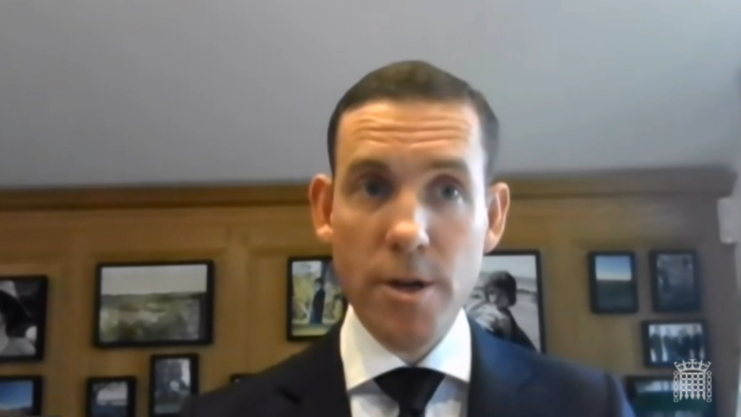Lex Greensill apologises for Greensill Capital collapse as he faces ‘fraudster’ allegations

Lex Greensill has apologised for the collapse of Greensill Capital and has blamed it on the firm’s insurance provider Tokio Marine pulling its coverage in March this year.
Speaking to a Westminster committee today, Greensill said that “I bear complete responsibility for the collapse of Greensill Capital”, while also apologising to its clients and the 1,000 people who lost their jobs.
The supply chain finance firm went bust in March this year, leaving creditors more than £1.5bn out of pocket.
Former City minister Lord Paul Myners said weeks ago that the company resembled a Ponzi scheme and that its collapse would indirectly cost taxpayers up to £5bn.
He was also branded a “fraudster” today by two members of the the Treasury Select Committee.
Greensill, who rejects all these claims, today spoke to the committee as a part of its probe into the failed firm and David Cameron’s efforts to lobby ministers on behalf of the firm.
Cameron will face the committee on Thursday.
Greensill said a chain of events led to insurer Tokio Marine refusing to renew its contract in March, which led the company to go bust.
He said: “The reason Greensill ultimately failed was because a material portion of our funding was provided by investors who require insurance together with that asset they purchased to protect them against the fault of the underlying receivables.
“Our principal insurance provider decided not to renew their insurance, despite being in discussions around renewing their insurance up to the hours before Credit Suisse determined they would no longer fund out business, which is roughly a week before we went into administration.
“It was that withdrawal of insurance capacity which resulted in our failure.”
He said the insurance firm pulled out for three reasons – the Covid recession had damaged some of its clients, the firm relied too much on too few companies and “the actions of the regulator of Greensill Bank in Germany created uncertainty with respect to our ability to continue this support and provide liquidity for a key customer that relied upon us”.
“In mid-December 2020 our German regulator proposed a reduction plan with respect to the amount of exposure we held for one of our customers that was going to be impossible for us to comply with,” he said.
Greensill said he was not worried about the firm going bust until December last year when concerns were raised about how the health of capital markets would affect the firm’s clients.
Former Prime Minister David Cameron worked for Greensill Capital and lobbied ministers, Treasury civil servants and Bank of England officials in April 2020 for the firm to get access to a government bail out.
The bail out would have been through the Covid Corporate Financing Facility (CCFF), which saw the Bank of England buy bonds in investment grade companies to provide emergency liquidity.
However, Greensill said today that the firm was not at threat of collapse in April last year and that it was “prudent” to try and join the CCFF as “we didn’t know what was going to happen next”.
Lord Paul Myners told the Treasury Committee weeks ago that Cameron and Greensill “should have known” the firm was in trouble during the early parts of the pandemic, particularly as it relied on “prospective receivables” – speculative future financing predictions.
Labour MP Rushanara Ali said that Greensill’s operation “smacks of fraudulent behaviour” and of an illegal Ponzi scheme.
Fellow MP Siobhan McDonagh asked if Greensill was a fraudster.
He said he was not.
When responding to claims he was running a Ponzi scheme, Greensill said: “We were using data inside corporate systems to allow the customers or suppliers they had to be able to unlock capital using that information and using the example here in the UK here in the pharmacy scheme that meant we were extending on average at any point in time just under £300m on a consistent basis to pharmacies that wouldn’t have been available to them otherwise.
“When I started Greensill no member of this committee or indeed I think of any institution had heard of supply chain finance. Now every major financial institution in the world offers it as a product rather like a chequing account to a corporate. Tens of millions of businesses have benefited from that.”